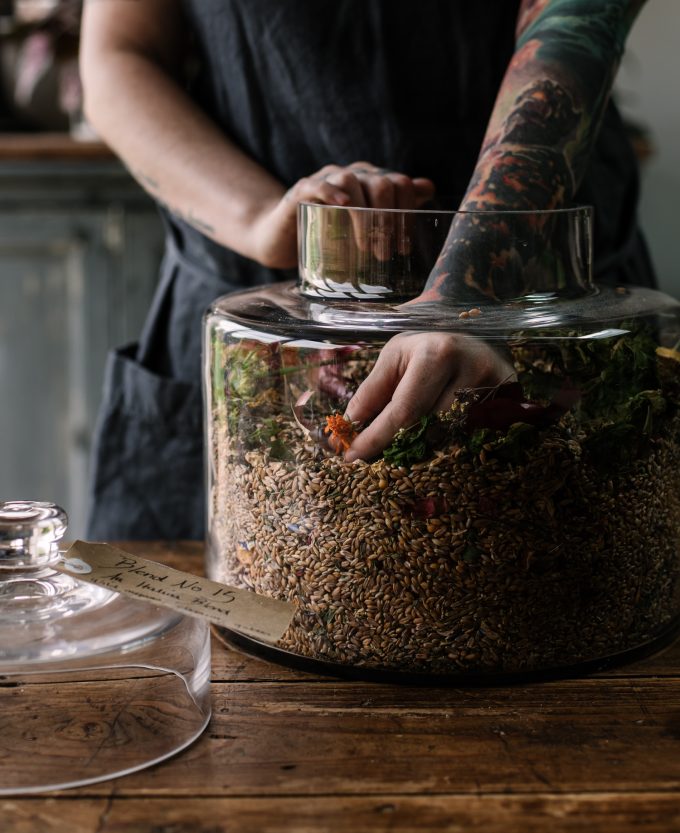Every bake has a diversity score
The idea of the diversity score was developed here at the School over many years, and all of our recipes are developed with this concept in mind.
Right at the core of our principles is baking to nourish the gut microbiome, and this starts with delivering the widest range of ingredients. While there is still much to be discovered about the microbiome, all the research points, over and over again, to a simple fact: the wider the diversity of your gut microbiome, the more robust your health. And eating the widest range of ingredients means you can feed the widest range of microbes.
Each of our recipes has been given a diversity score that counts up the number of ingredients, ensuring we retain our focus on including the widest possible diversity in each recipe.
Botanical Blends
The foundation of our baking is flour, salt, water and fermentation. It’s simple, but there is a fundamental flaw in this principle: the flour. Commercial flour is based on monoculture.
‘Mono’ means single. Flour is almost always milled from a single grain: wheat. Bread wheat (Triticum aestivum) is a cultivated crop and makes up 95% of the wheat produced worldwide. Our very definition of flour needs to change if we are to make bread or baked goods that actually nourish.
Here are the School, we mill all our own wholegrain flours using a Mockmill, creating special Botanical Blends that are designed not just to make incredibly delicious bread but also to recreate the meadows where our ingredients grow. These blends are also informed by the most up-to-date studies on nurturing the positive microbes in the gut.

Examples of diversity scoring
Diversity score of a commercial flour bake = 1
A loaf baked with commercial flour contains just flour, salt and water (discounting emulsifiers, L-cysteine hydrochloride (E920) L-ascorbic acid (E300) hydrogenated fats or preservatives, of course).
This gives a total diversity score of 1.
Diversity score of a Sourdough School bake = 14
A loaf baked with our base Botanical Blend, Meadow Blend (No. 2), along with water, a little olive oil and sea salt, however, has a total diversity score of 14.
Our loaves rarely have a diversity score of less than 14.
____________________________________________________________________________________
‘Vanessa’s work on sourdough and the gut microbiome is changing the way we think of food, health and baking.’
Tim Spector,
Professor of Genetic Epidemiology & Director of the Twins UK Registry at Kings College, London.
